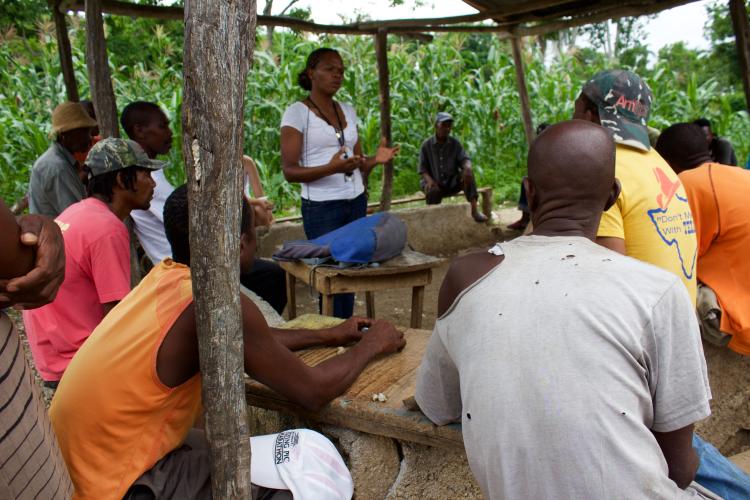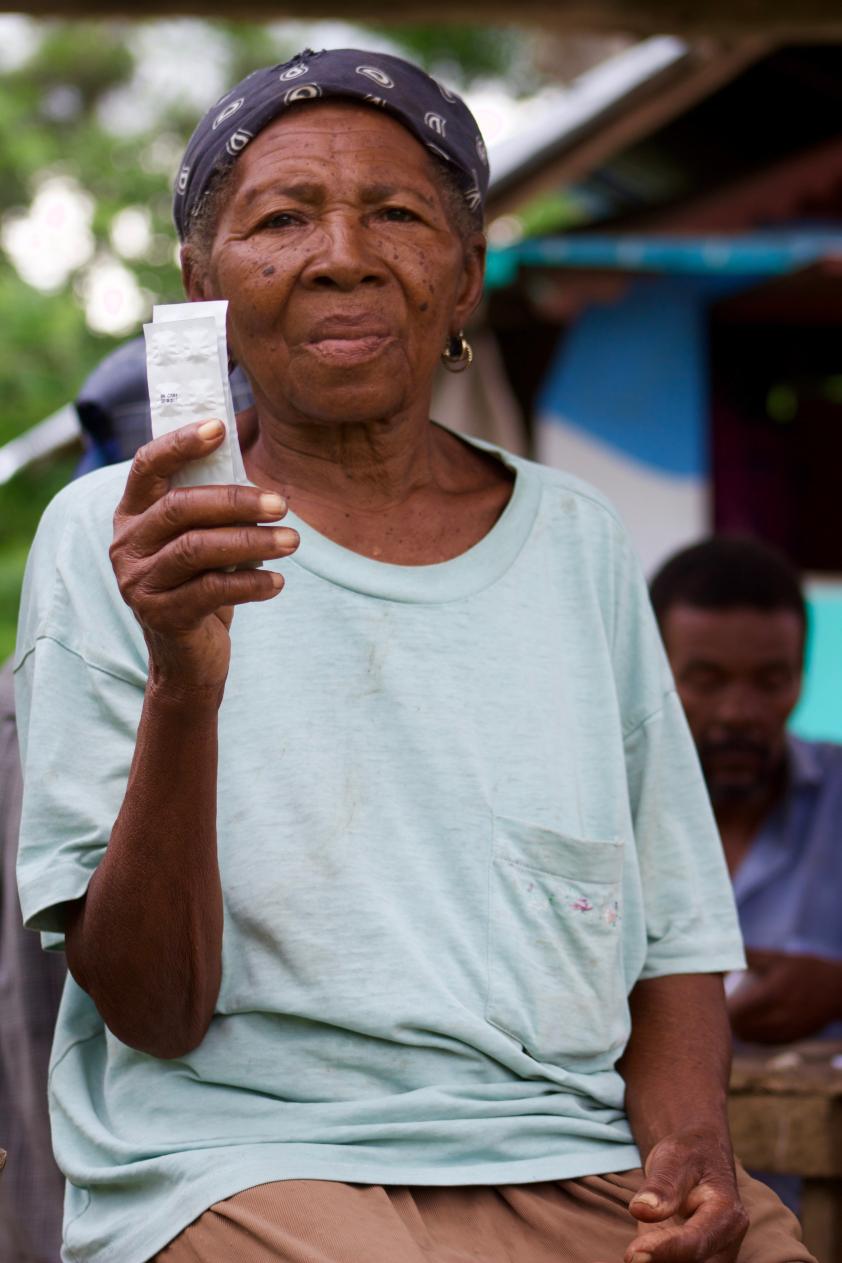“We value making patients feel welcome.”
Your donation will help Nurse Laguerre provide the highest-quality care to every patient in need.


Cholera is continuing to plague the communities in and around Fond des Blancs. With recent rains, the number of patients with cholera symptoms has spiked again, to 33 new cases the week of May 15th.
With cholera a long-term pandemic in Haiti, SBH has developed a comprehensive process for treating patients in the hospital and going out into the communities most affected by new outbreaks. In order to better understand how community-based cholera prevention and treatment works, HEI/SBH’s summer communications intern, Gabi, went out with a cholera education team to learn more.
* * * * * * * * * * * *
Community Health Worker Willy Darcelin takes questions from a crowd of neighbors and friends sitting under a thatched roof pavilion in Brillant, Haiti. Today the townspeople are participating in a cholera education session that is part of a larger campaign by SBH to encourage prevention and early detection of the diarrheal disease. Willy, a Health Worker and member of the community, lead the meeting alongside St. Boniface nurse Miss Velouse.
I’m happy that people in the community have taken our advice to combat cholera.
Willy Darcelin
The people of Brillant are no strangers to cholera, as most of them remember the original outbreak that ravaged the island nation more than six years ago, several months after the devastating January 2010 earthquake. The first cases were identified in the Artibonite River delta several months later, in October, and in a little over two years, Haiti’s cholera epidemic had escalated to become the worst in recent history.
As of March 2016, Haiti’s official cholera death toll tallied 9,200 since the initial outbreak, but a study conducted by Doctors Without Borders suggests that this number is a gross understatement, as many cases have gone unreported due to incomplete data collection, overwhelmed health clinics, and the disease’s ability to kill rapidly. Studies have traced the outbreak to faulty sanitation practices by a United Nations peacekeeping force.
Despite being on a downward trend since 2011, Haiti saw a surge of cholera cases in late 2015. In the month of November alone, SBH confirmed 69 cases and reported an additional 15 suspected cases—the largest outbreak in our area since 2012. The outbreak continued into 2016, with 51 cases in the month of January. The numbers have since gone down slightly, but remain higher than those of the previous few years.
In response to the growing threat, SBH set up isolation tents and enforced infection control protocols around the treatment area at the hospital, in order to contain the disease. The hospital also began dispatching community health teams to provide cholera education, water treatment kits, and oral rehydration salts to at-risk communities.
SBH’s nurses and health workers conduct meetings in remote towns, like Brillant, where people have limited access to information and resources. As cholera spreads most often through contaminated food and water supplies, Brillant was also chosen as the setting for today’s meeting based partly on its proximity to the local river—a frequent vector for cholera.
While Brillant has not been as affected by the recent outbreak as some other communities, our Health Worker Willy recalls the town’s last diagnosed case in January.
“We brought the patient to a nearby clinic because I knew it was important for her to be seen immediately,” he says. “She survived thanks to early diagnosis and treatment.”
Up to 80% of cholera cases can be successfully treated with oral rehydration salts, but if left untreated, the disease can become deadly within just a few hours.

SBH nurse Miss Velouse concludes the cholera training session by offering the townspeople Aquatabs, a type of water purification tablet. The crowd laughs as Miss Velouse tells a story of an infected woman who died because she thought the filtration tablets were supposed to be ingested. The seemingly absurd anecdote is telling of the importance of education, and according to Willy, the people of Brillant are eager to learn.
“I’m happy that people in the community have taken our advice to combat cholera,” Willy says. “We all want to fight it, to eradicate it.”
Your donation will help Nurse Laguerre provide the highest-quality care to every patient in need.
